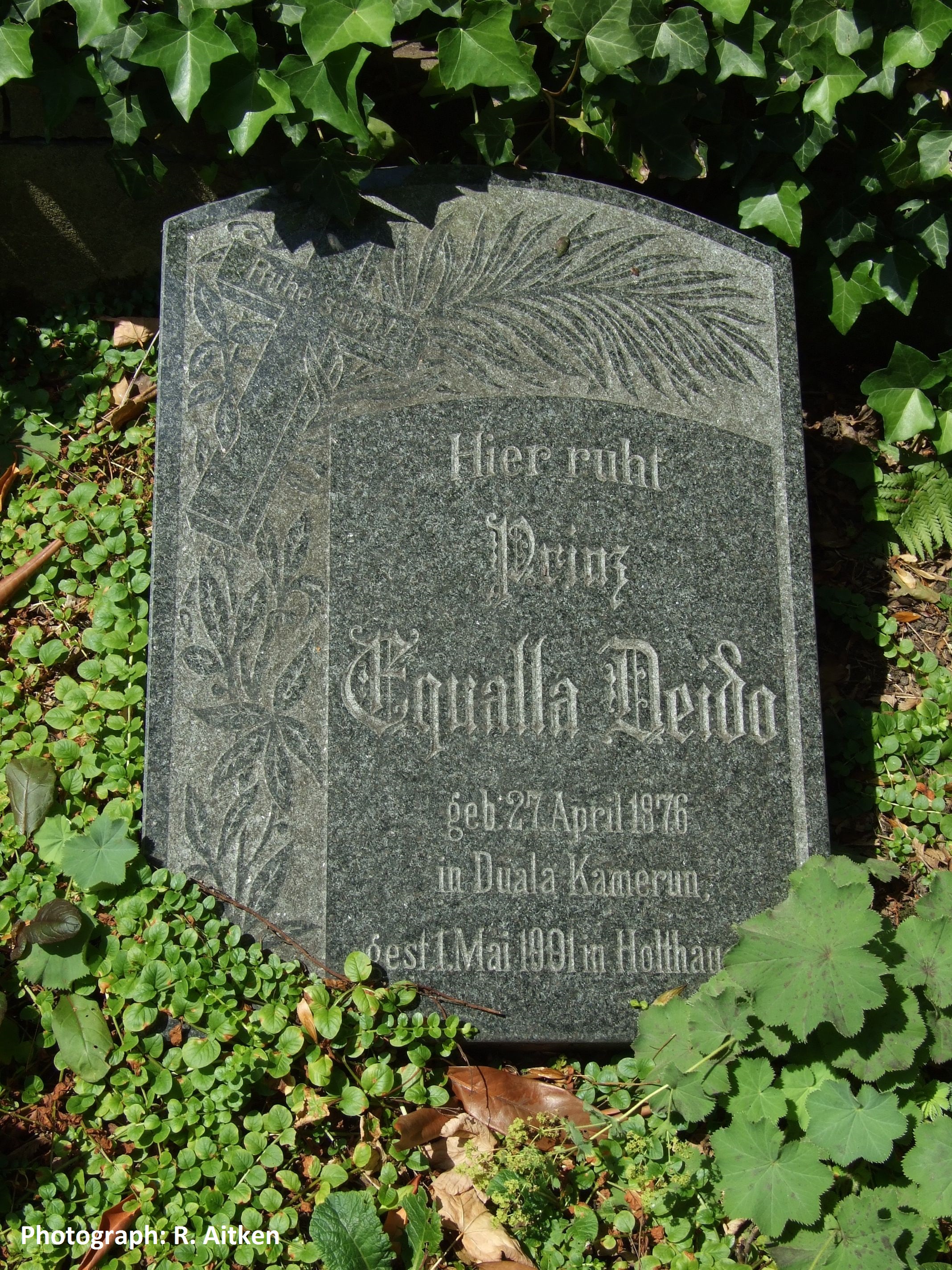The gravestone of Prince Equalla Deido (Songue Epee Ekwalla Eyoum Ebelle) found in the Holthausen cemetery in Mülheim on the Ruhr provides evidence of the increasing presence of Black men, women and children in Germany pre-1914. Equalla Deido from Cameroon was the first-born son of the Duala notable Epee Ekwalla (Jim Ekwalla or King Deido) and, like dozens of other male youngsters from elite Cameroonian and Togolese families, he was sent to school in Germany, pre-1914. A younger brother, Otto Ekwalla would later be educated in Berlin.
Equalla Deido died within months of his arrival in Mulheim in May 1891. While German sources suggest that he died of pneumonia, like a number of early African visitors, oral history in Deido tells the story of him dying in a duel defending his honor, after having been subjected to discriminatory remarks. His father visited the site of his grave while in Germany as part of the Duala delegation to Berlin in 1902.
The image shows the restored gravestone which incorrectly identifies the year of Equalla’s death as 1901 and not as 1891.
Robbie Aitken
Deutsch

Source: Aitken, Robbie. Personal collection.

The gravestone of a Cameroonian prince (1891) by Robbie Aitken is licensed under a Creative Commons Attribution-ShareAlike 4.0 International License.
Permissions beyond the scope of this license may be available at https://blackcentraleurope.com/who-we-are/.